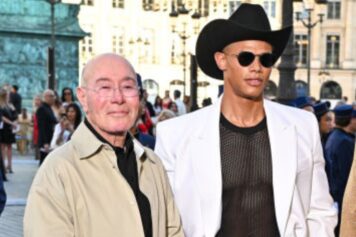As new facts about COVID-19’s impacts on the Black community continue to come to light, Atlanta Black Star sat down with a thought leader to discuss how the disease could potentially affect some of the most vulnerable within the Black community.
Public speaker, filmmaker, journalist, and gentrification expert Jarrett “King” Williams has been educating the masses on the impacts of gentrification since 2007, and after spending some time interning with Spike Lee and studying at Georgia State University, has dedicated his career to separating fact from fiction as it relates to gentrification in the Black community. Since then, he’s created and produced “The Atlanta Way” a documentary on gentrification, and spoken about the subject at the Harvard Kennedy School of Government, the Alabama School of Journalism, Teach for America and TEDxGeorgia State, among other projects.

Williams spoke with Atlanta Black Star about his projections for COVID-19’s impact on lower-income families including some concerns and what we as a community can do to help.
As an Atlanta native, he’s witnessed firsthand the impact that gentrification and poverty can have on Black communities, which contributed to his interest in the topic. “From me being from where I grew up at, I grew up in Atlanta on the east side of Decatur, and I didn’t realize this until I was older, but basically, for the majority of my life I was living in an area my entire life that was either gentrifying, or on it’s way to bottoming out in order to gentrify, so I was always had that thought process,” he told Atlanta Black Star. “When I got to college I realized that East Lake [East Lake Meadows, a former Atlanta public housing project] is gone, and that kind of piqued my interest.”
Williams is watching with growing concern as COVID-19 is infecting and killing Black people at a much higher rate than other races, which health officials are attributing to a number of reasons.
Director of the National Institute of Allergy and Infectious Diseases Dr. Anthony Fauci publicly acknowledged the disparity in numbers, citing prior existing conditions that disproportionately affect the Black community, like hypertension, obesity, and asthma. “Unfortunately, when you look at the predisposing conditions that lead to a bad outcome with coronavirus — the things that get people into ICUs that require intubation and often lead to death, they are just those very commodities that are, unfortunately, disproportionately prevalent in the African-American population,” he said during an April press briefing.
That, on top of the fact that a fair share of people living in Black and low-income communities are considered “essential workers” during this time, makes the lack of available resources even more alarming to Williams. “The people who are most likely to be either on the front lines,” he said of those he believes will be most impacted during the pandemic. “The retail workers, the CNAs, even your Uber drivers and sanitation workers, those are still low-income to working-class Black people. A lot of those people who have those jobs are either renters or living in homes with family … they were already kind of on the bubble.”
Williams considered some of the ways the outbreak might hit these vulnerable people the hardest. “Some people, I think, are just essentially afraid of having to go to the hospital, get charged $500 so the doctor can talk to you for three minutes,” explained Williams. “Then you’ve lost a day of work, if you’re lucky enough to work from home, and you’re sitting out there with all the sick people, so you may have actually gotten sick because you had to sit in the hospital. Overall, it’s just unaffordable to get the health care that you need.”
Williams says that because many Black businesses are transactional, or rely on upfront sales, they stand the most to lose. “I think that you could see as high as 50 percent of all Black businesses get wiped out … and the reason I say 50 percent is because so many of our businesses are transactional, whether it be online or in person,” he stated. “Transactional businesses aren’t currently the [high] revenue businesses, so that puts us in a really vulnerable spot, so we have to always be in front of somebody, always hustling, always doing something to get that business.”
It’s not all doom and gloom, however. Williams feels there are a few ways that Black people can come together to help one another stay afloat amid these choppy waters. “It’s going to take a galvanizing. … For the people who have means, there’s two things we should do right now,” he said. “One thing is digitally organize, because everyone is at home, what restaurants are open for business, and then, two, which ones accept digital payments, and things like that. … The best thing to do right now is galvanize every restaurant, or black-owned business that’s open.”
Another way to help out is by supporting the businesses and their owners by purchasing their products, and getting a little creative. “If you have a decent relationship with the business owner and it’s open still, then purchase from the [business] if you’re able to,” Williams said. “If you have the ability, and they have a GoFund Me or a Patreon or something like that, donate. If you and the business owner are cool, figure out what their rent is for the next six months, and see if you can organize a community around it to buy enough to at least cover the cost of the rent for the next six months.”
During this time when new information is consistently coming out, it’s important to arm yourself with the facts, as well as actions that can be taken to help. The value of the Black dollar is real, and now is a time that those who are able can focus on putting it to use where it can do the most good.
Williams is currently writing a book on the role of public art and gentrification entitled “Living Wall” alongside Living Walls co-founder Monica Campana, as well as producing a podcast and newsletter about gentrification called “Watch The Hood.”




